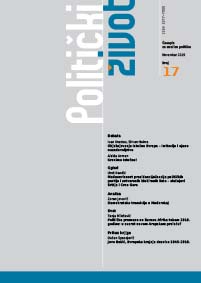Demokratska tranzicija u Mađarskoj
Democratic transition in Hungary
Author(s): Zoran JovovićSubject(s): Governance, Political history, Government/Political systems, Post-Communist Transformation
Published by: Fakultet političkih nauka Univerziteta u Beogradu
Keywords: post-totalitarianism; democratic transition; political actors; negotiations; democratic consolidation; Hungary;
Summary/Abstract: Transition, as one of the most popular sociological and political concepts of the day, means nothing but a transition from one state to another one, i.e. the transition from a non-democratic regime into a democratic one. Transition begins when individuals, who belong to the governing structure of a non-democratic regime – authoritarian, totalitarian, and posttotalitarian – begin to correct their behavioral rules and act towards the development of all individual and collective rights and freedoms in the social system. Weakening and collapse of a non-democratic regime launches a transition which aims towards the construction of a political life that will, above all, be pluralistic. The transition can have two directions – forward: from a non-democratic to a democratic regime, and backward: from a democratic to a non-democratic regime. In the intermediate period – transition – new political and overall social relations are being formed, which then spread and become the necessary conditions for the functioning of the new political and, overall, new social system. This paper considers the process of democratic transition in Hungarian society. We are focused on analyzing and exploring socio-political factors that enable, or possibly prevent, a successful transition from one undemocratic political regime to another, a better political regime. That better political regime is the democratic regime.
Journal: Politički život
- Issue Year: 2019
- Issue No: 17
- Page Range: 47-65
- Page Count: 19
- Language: Serbian

